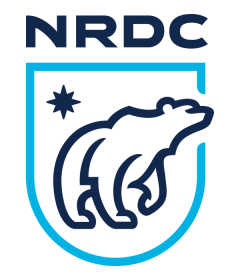In order to limit global warming to 1.5 degrees Celsius and avoid the worst environmental and public health impacts of climate change, greenhouse gases (GHG) emissions must be reduced rapidly, reaching net zero emissions by mid-century. Because most GHG emissions result from extraction, transport, and combustion of fossil fuels, achieving the net-zero emission goal will require not only reduced consumption of currently developed fossil fuel supplies but also reduced development of new fossil fuel supplies (predominantly oil and gas in the U.S) and associated infrastructure to minimize both new emissions and carbon lock-in. However, we currently lack effective policy or legal tools to objectively evaluate or determine the climate “significance” of individual projects and whether or to what degree development of any given new project would be consistent with the climate goal.
NRDC is seeking a Climate and Energy Systems Science Fellow for a fulltime, two-year post-doctoral Fellowship to help us develop such a tool. The Fellow will provide subject matter expertise and conduct multidisciplinary research, analysis, modeling, and synthesis of a range of scientific data and policy information to develop a structured analytical and evaluation framework for assessing the magnitude and significance of the climate impacts of individual oil and gas projects.
Specific topics and projects undertaken by the Fellow will likely include:
- Developing a baseline database and descriptions of various types of existing oil and gas projects in North America and quantifying their lifecycle greenhouse gas (GHG) emissions.
- Developing a representative inventory of planned future oil and gas projects and using existing data and models to estimate their lifecycle GHG emissions.
- Developing target emission reduction trajectories based on the 1.5o C goal for each relevant oil and gas sector based on evaluations of current and projected supply, demand, energy alternatives, and economics.
- Developing criteria and a methodology for determining whether an individual project will displace other energy projects with either greater or lesser GHG impacts.
- Based on developed emission reduction trajectories, quantifying the level of GHG emissions offsetting that would ensure consistency with the 1.5o C goal, and determining a threshold of significance for when such offsets should be required.
- In collaboration with NRDC energy and policy experts and external research and policy partners, synthesizing this (and other) information to outline the elements of a structured assessment framework to evaluate the climate significance of individual oil and gas projects for use in multiple arenas, including regulatory processes (e.g., National Environmental Policy Act (NEPA) analysis), policy development, and advocacy activities.
- Preparing a simplified model for the assessment framework that can be deployed by state and federal agencies which are tasked by law with assessing the climate significance of proposed projects.
The Climate and Energy Systems Fellow will be supported by NRDC’s Science Center and its Science Fellows program, and NRDC’s Nature program, which works on a variety of issues relating to the intersections of fossil fuel development, climate change, public lands, and natural ecosystems.
The Science Fellows program is a key element of the Science Center’s mission to enhance NRDC’s scientific capabilities and provide resources and support for research, scientific interpretation and application, policy, and advocacy work. The Science Fellows program provides young scientists interested in working in the science, policy, and advocacy arena with professional experience and on-the-job training; it is an excellent opportunity to refine existing skills and build new ones, develop professionally, publish work, and gain important competencies.
The Fellow will be based in our San Francisco, CA office (preferred) or our Washington, DC, or New York, NY offices.
- Reviewing, analyzing, and assessing the range and robustness of available scientific literature, databases, and models relevant to the project.
- Working with the Science Center, the Nature Program, other NRDC experts, and external collaborators to identify and prioritize the information, data, and analyses needed for development of the assessment framework, and to develop a research, analytical, and reporting/publication plan for the project.
- Accessing data and conducting quantitative analysis, modeling, interpretation, and synthesis to develop the quantitative elements, decision criteria, and evaluation methodologies for the project.
- Working with NRDC and other policy experts to ensure the tool is useful and relevant for application in the legal, regulatory, and policy arenas.
- Drafting reports, presentations, and peer-reviewed journal articles describing the rationale, components, methodology, and evaluation and decision criteria for the climate impact assessment tool and its applicability in the regulatory, policy and advocacy arenas.
- Responding to inquiries about the topic and project from NRDC program, policy, communications, and legal staff; colleague organizations; and the media.
- A solid understanding of life cycle assessment, with an emphasis of GHG life cycle assessments for petroleum fuels.
- A solid understanding of climate change mitigation and emission reduction scenarios and pathways.
- Excellent quantitative analytical, modeling, and problem-solving skills.
- Demonstrated success working with multi-disciplinary teams.
- Excellent organizational and time management skills.
- Excellent verbal and written communication skills.
- Experience communicating with non-technical audiences.
These additional attributes are desired, but not essential:
- Expertise and/or experience with petroleum energy economics, supply, and demand issues.
- Experience with model development and coding.
- Experience with policy analysis or advocacy.
- Media training and/or experience giving media interviews.
